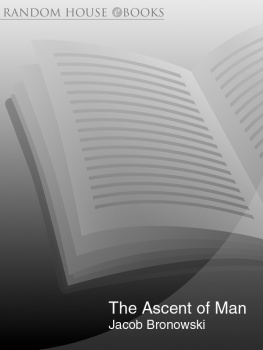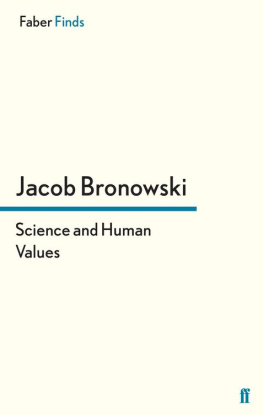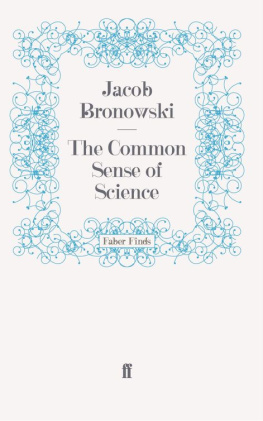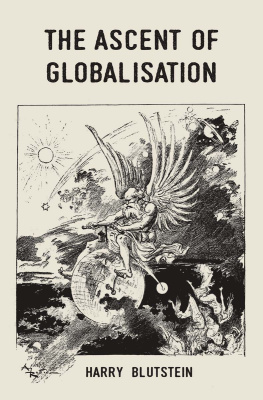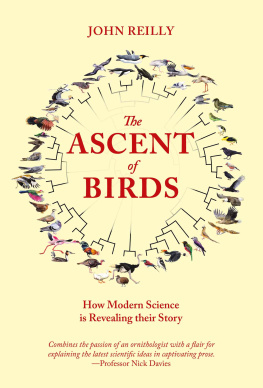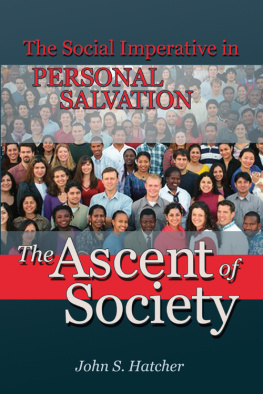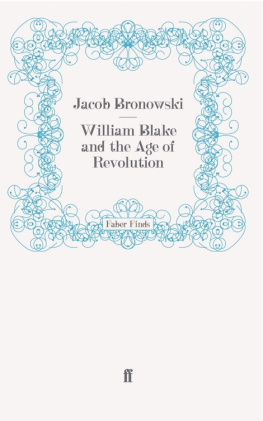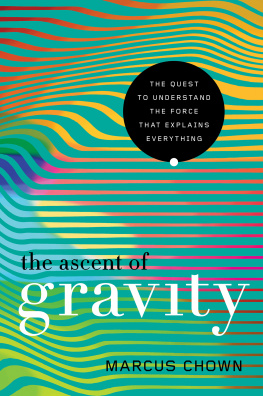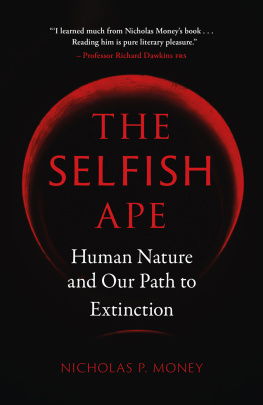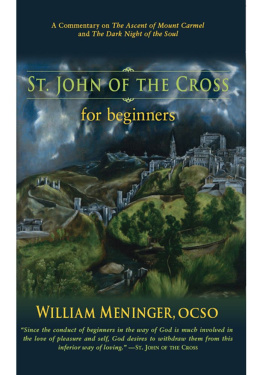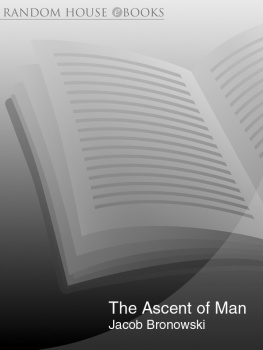
About the Book
Dr Jacob Bronowksis The Ascent of Man traces the development of human society through our understanding of science.
First published in 1973 to accompany the groundbreaking BBC television series, it is considered one of the first works of popular science, illuminating the historical and social context of scientific development for a generation of readers. In his highly accessible style, Dr Bronowski discusses human invention from the flint tool to geometry, agriculture to genetics, and from alchemy to the theory of relativity, showing how they all are expressions of our ability to understand and control nature.

This eBook is copyright material and must not be copied, reproduced, transferred, distributed, leased, licensed or publicly performed or used in any way except as specifically permitted in writing by the publishers, as allowed under the terms and conditions under which it was purchased or as strictly permitted by applicable copyright law. Any unauthorised distribution or use of this text may be a direct infringement of the authors and publishers rights and those responsible may be liable in law accordingly.
Version 1.0
Epub ISBN 9781446417157
www.randomhouse.co.uk
This book is published to accompany the television series entitled
The Ascent of Man, first broadcast on BBC in 1973.
Series Editor: Adrian Malone
Producer: Richard Gilling
1 3 5 7 9 10 8 6 4 2
This paperback edition published in 2011 by BBC Books, an imprint of Ebury Publishing.
A Random House Group Company
First published in hardback by the British Broadcasting Corporation in 1973
First paperback edition published in 1976
Foreword copyright Richard Dawkins 2011
Main text Science Horizons Inc. 1973, 1976, 1980, 1990, 2011
Design Woodlands Books 2011
Cover design Woodlands Books 2011
Dr Jacob Bronowski has asserted his right to be identified as the author of this Work in accordance with the Copyright, Designs and Patents Act 1988
All rights reserved. No part of this publication may be reproduced, stored in a retrieval system, or transmitted in any form or by any means, electronic, mechanical, photocopying, recording or otherwise, without the prior permission of the copyright owner.
The Random House Group Limited Reg. No. 954009
Addresses for companies within the Random House Group can be found at www.randomhouse.co.uk
A CIP catalogue record for this book is available from the British Library.
ISBN 978 1849901154
To buy books by your favourite authors and register for offers, visit www.rbooks.co.uk
CONTENTS
About the Author
Dr Bronowskis magnificent thirteen-part BBC television series The Ascent of Man traced our rise both as a species and as moulders of our own environment and future. The book of the programmes covers the history of science, but of science in the broadest terms. Invention from the flint tool to geometry, from the arch to the theory of relativity, are shown to be expressions of mans specific ability to understand nature, to control it, not to be controlled by it. Dr Bronowskis rare grasp not only of science, but also of its historical and social context, gave him great advantages as an historian of ideas. The book gives us a new perspective not just on science, but on civilisation.
Dr Jacob Bronowski, who was born in Poland in 1908, died in 1974. His family had settled in Britain and he was educated at Cambridge University.
He was distinguished not only as a scientist but also as the author of books and broadcasts on the arts. Many viewers will remember his science programmes on television: he also wrote radio plays, including one which won the Italia Prize.
Dr Bronowski, who was an Honorary Fellow of Jesus College, Cambridge, had lived and worked in America since 1964, as a Senior Fellow and Director of the Council for Biology in Human Affairs at the Salk Institute for Biological Studies, San Diego, California.
Other Books by J. Bronowski
The Poets Defence 1939 & 1966
William Blake and The Age of Revolution 1944 & 1965
The Common Sense of Science 1951
The Face of Violence 1954 & 1967
Science and Human Values 1958
with The Abacus and The Rose:
A New Dialogue on Two World Systems 1965
Selections from William Blake 1958
The Western Intellectual Tradition
(with Prof Bruce Mazlish) 1960
Insight 1964
The Identity of Man 1965 & 1972
Nature and Knowledge:
The Philosophy of Contemporary Science 1969
FOREWORD
by Richard Dawkins
Last renaissance man has become a clich, but we forgive a clich on the rare occasion when it is true. Certainly it is hard to think of a better candidate for the accolade than Jacob Bronowski. Youll find other scientists who can parade a deep parallel knowledge of the arts, or in one actual case combine eminence in science with pre-eminence in Chinese history. But who more than Bronowski weaves a deep knowledge of history, art, cultural anthropology, literature and philosophy into one seamless cloth with his science? And does it lightly, effortlessly, never sinking to pretension? Bronowski uses the English language not his first language, which makes it all the more remarkable as a painter uses his brush, with mastery all the way from broad canvas to exquisite miniature.
Inspired by the Mona Lisa, here is what he has to say about arguably the first and greatest renaissance man, whose drawing of the baby in the womb introduced the television version of The Ascent of Man:
Man is unique not because he does science, and he is unique not because he does art, but because science and art equally are expressions of his marvellous plasticity of mind. And the Mona Lisa is a very good example, because after all what did Leonardo do for much of his life? He drew anatomical pictures, such as the baby in the womb in the Royal Collection at Windsor. And the brain and the baby is exactly where the plasticity of human behaviour begins.
How deftly Bronowski segues from Leonardos drawing to the Taung baby: type-specimen of our ancestral genus Australopithecus, victim as we now know, though Bronowski didnt when he performed his mathematical analysis on the tiny skull of a giant eagle two million years ago.
Theres a quotable aphorism on every page of this book, something to treasure, something to stick on your door for all to see, an epitaph, perhaps, for the gravestone of a great scientist. Knowledge is an unending adventure at the edge of uncertainty. Uplifting? Yes. Inspiring? Without doubt. But read it in context and it is shocking. The grave turns out to belong to an entire tradition of European scholarship, destroyed by Hitler and his allies almost overnight:
Europe was no longer hospitable to the imagination and not just the scientific imagination. A whole conception of culture was in retreat: the conception that human knowledge is personal and responsible, an unending adventure at the edge of uncertainty. Silence fell, as after the trial of Galileo. The great men went out into a threatened world. Max Born. Erwin Schrdinger. Albert Einstein. Sigmund Freud. Thomas Mann. Bertolt Brecht. Arturo Toscanini. Bruno Walter. Marc Chagall.
Words so powerful dont need a raised voice or ostentatious tears. Bronowskis words gained impact from his calm, humane, understated tones, with the engagingly rolled Rs as he looked straight into the camera, spectacles flashing like beacons in the dark.
Next page
